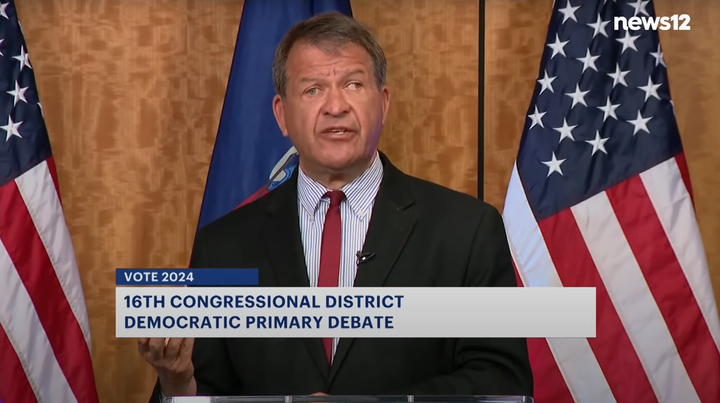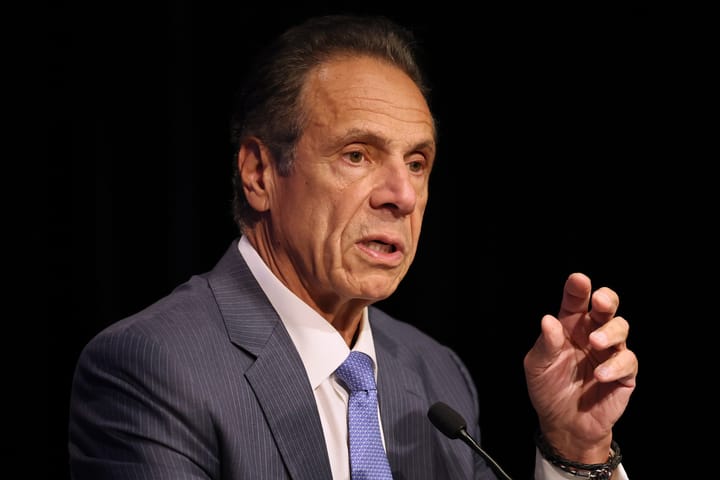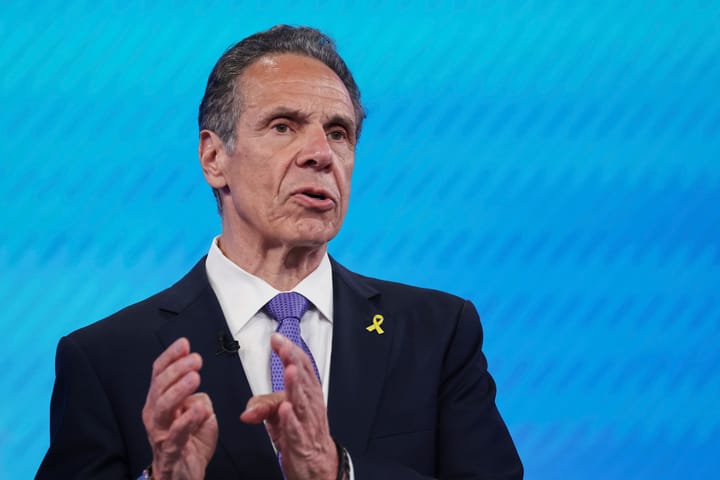In New York, early voting begins on June 15 in one of the most expensive and high-profile congressional races in the country, where incumbent Rep. Jamaal Bowman faces a Democratic primary challenge from Westchester County Executive George Latimer. But to date, New Yorkers have not been able to see a personal financial disclosure for Latimer, even as millions of dollars in outside spending flood the district to promote him to voters.
Under the Ethics in Government Act of 1978, U.S. House candidates are required to file financial disclosures with the Clerk of the House within 30 days of qualifying as a candidate. Latimer, who publicly launched his campaign in the first week of December and registered with the Federal Election Commission on December 4, still has not filed his disclosure.
The Latimer campaign did not respond to multiple inquiries about the candidate’s absent personal financial disclosure. Early voting in New York runs through June 23 and primary Election Day is June 25.
Danielle Caputo, legal counsel in Ethics for the nonprofit Campaign Legal Center (CLC), told Sludge, “The law requires candidates, once they have qualified by raising or spending $5,000 in support of their campaign, to file candidate financial disclosure reports.”
As a House member and previously as a federal candidate in the 2020 cycle, Bowman’s personal financial disclosures are available online. The Bowman campaign did not respond to a request for comment about Latimer’s financial disclosure.
Financial disclosure forms allow the public and government ethics officials to review the potential conflicts of interest of policymakers and candidates for the job. The information they provide is vital for the enforcement of ethics rules, such as the House of Representatives’ prohibition against members using the influence of their positions within the House for personal gain. If Latimer were to be sworn in without filing a candidate disclosure, he could serve in the House without transparency around his personal finances, potentially through the middle of August of his first term.
“Financial disclosure reports contain vital information about candidates' personal financial interest,” Caputo told Sludge. “Voters have the right to know about their potential representatives’ conflicts of interest so they can make informed decisions at the ballot box.”
The disclosures include information on candidates' sources of income, positions held with companies and other nongovernmental organizations, financial assets worth $1,000 or more, liabilities, agreements they may have regarding future employment, and gifts they have received from people other than relatives. The disclosures also contain information about the financial interests of candidates’ spouses and dependent children.
According to Sludge’s review of candidate disclosures in all of New York’s 26 congressional races, the Latimer campaign is in the minority in not filing a financial disclosure. There are at least five other primary contests in New York races for the U.S. House this month (in the First, Tenth, Fourteenth, Twenty-Second, and Twenty-Fourth Congressional Districts). Of the challengers in these races, six candidates have filed personal financial disclosures with the Clerk, while one appears to have not filed, and one has not reported meeting the $5,000 threshold to the FEC.
Three Democratic challengers who will face incumbent New York Republicans in the November general election in races rated “toss-up” by the Cook Political Report—candidates Laura Gillen, Mondaire Jones, and Josh Riley—have each filed disclosures. Two Republicans challenging incumbent Democrats this fall—Michael LiPetri Jr. and Alison Esposito—have also filed.
The Bowman-vs.-Latimer primary in the Sixteenth District has attracted more than $8 million in outside spending, making it the most expensive primary contest yet to be decided this cycle, according to a ranking by OpenSecrets. Latimer has been the beneficiary of the vast amount of outside spending: nearly $7.1 million so far, led by $7 million reported to date from the United Democracy Project, the super PAC of the American Israel Public Affairs Committee (AIPAC). The lobbying group AIPAC recruited Latimer to run against the progressive Bowman, who has outspokenly called for a ceasefire in the Israel-Gaza war, as part of its plan to spend $100 million in 2024 to unseat candidates they deem insufficiently supportive of Israel.
Latimer has received more campaign cash from the PAC of AIPAC, operating as a conduit for contributions, than any other House candidate this cycle, totaling $1.5 million through April 30, according to Sludge’s review of FEC data. About one in three dollars raised by Latimer’s campaign, as of the end of March, came from AIPAC’s PAC, according to Sludge’s calculations.



